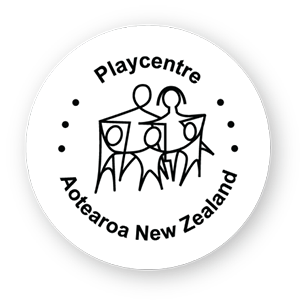Te Ara o Te Aukati – Te Whakatūwhera i raro i te taumata whakatūpato tuarua.
Re-opening Playcentre at level 2 Covid-19 using tikanga Māori
Ahakoa he iti te matakahi, ka pakaru i a ia te tōtara
Although the wedge is small, it overcomes the tōtara tree (meaning: A little effort applied properly can achieve good results)
Ka nui te mihi ki a koutou e Te Whānau Tupu Ngātahi o Aoteroa. He pānui tēnei hei arahi i te whānau e whakahoki anō rā ki te whakatūwhera i ngā wahi ako me ngā wāhi mahi i raro i te taumata whakatūpato tuarua. Ko ēnei kōrero e whai ake i te ara aukati he tohutohu ka hikitia te rāhui i te hokinga atu ki tō rātau whare kōhungahunga. Kei waenganui i te whānau kua taunga kē ētahi o rātau ki ēnei tikanga Māori, heoi anō ki te kore e waia atu ki ngā tikanga anei koa he ara tohutohu mā koutou e tautoko atu. Mēna he hiahia nāu ētahi āwhina me pā atu ki ngā kaimahi Māori o Te Ao Māori.
The information in this pānui is a brief tikanga guide for centres returning to their place of learning and place of work under the COVID-19 level 2. The following guide will support centres wishing to use tikanga Māori to return to their learning environment. Amongst the whānau there will be those already familiar with customary Māori concepts like these, however for other whānau unfamiliar please use the following guide to help you. If you require more support or help make contact with the Te Ao Māori Field Worker in your region. Their contact details are in the link here.
Te wā tuku reo
One thing New Zealanders are good at is uniting. Whether it’s against COVID or behind our indigenous language.
When the Māori Language Petition was presented to parliament in 1972, local school teachers and students were there. Across the past half century, schools have played a key role in the revitalisation of te reo. Next month we are inviting your kura, school, staff and students to join us, to be part of history and help shape the future for Māori Language Week 2021.
Join us!
Professor Rawinia Higgins, Māori Language Commissioner
Ngahiwi Apanui, chief executive, Te Taura Whiri i te Reo Māori
New Zealanders are being invited to be part of history and help shape the future as the Māori Language Commission seeks to set a new world record with its award-winning Māori Language Moment.
“Last year 1 million New Zealanders celebrated te reo with us, this year we are hoping to see 2 million New Zealanders celebrating with us,” said commission chief executive, Ngahiwi Apanui.
“Te reo Māori is still an endangered language. We need everyone’s help to ensure it is safe for future generations.”
“As New Zealanders proved in 2020: te reo Māori is something that unites us no matter who are, or where we live.”
The commission will host a virtual moment at 12pm on Tuesday 14th September 2021. After registering online via www.reomaori.co.nz, participants can celebrate te reo from wherever they are, in whatever way they wish. In 2020 1,058,356 people sang, recited poetry, paddled waka ama, prayed and celebrated their way into history.
“We also want to set the world record for people speaking and celebrating an endangered, indigenous language at the same time. Last year more than 1 million people joined us for our Māori Language Moment, this year we want to see 2 million of us gathered together.”
The commission will be registering its world record attempt with the Guinness Book of World Records. A Colmar Brunton poll in December 2020 revealed that 8 in 10 Kiwis see te reo as part of their national identity.
For most of the 20th century the New Zealand government made it socially unacceptable to openly speak te reo Māori by discouraging and banning the language. Māori children were physically punished for speaking te reo at school and within a generation, the language was endangered. Peaceful protest and activism saw te reo made an official language in 1987, the same year the commission was established to help revitalise the language.
“It takes one generation to lose a language and three to get it back. If we are to safeguard te reo we need 1 million speakers by 2040,” said Māori Language Commissioner, Professor Rawinia Higgins.
“A key contributor to the death of a language is societal attitudes.”
“Our Māori Language Moment is about gathering as a nation to say we value our indigenous language. We also mark the moment the petition was presented to parliament in 1972. This is about coming together to reflect on our past, acknowledge where we are now and prepare for our shared future.”
“It is about us standing together as New Zealanders and saying we want to protect our language for future generations because te reo is the language of our nation.”
The inaugural moment in 2020 has been recognised globally as a leading initiative, most recently winning eight golds at the annual UN-endorsed, IPRA Golden World Awards (International Public Relations Awards) in London. In February Professor Higgins was elected to the UN Global Taskforce for the Decade of Indigenous Languages which begins next year.



